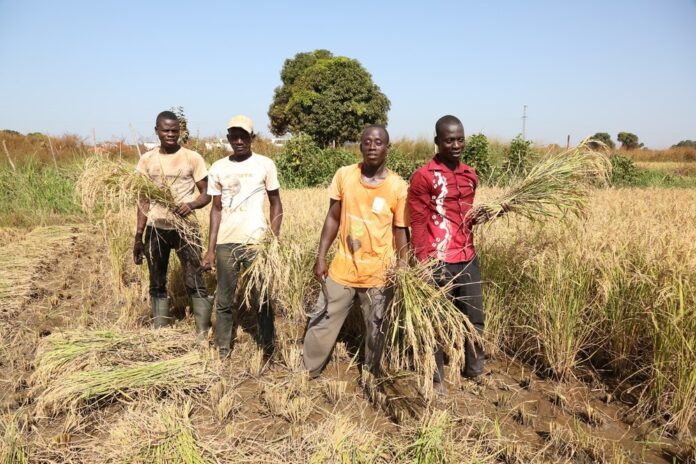Amid increasing global hunger and poverty, devastating climate change impacts, the Covid-19 pandemic and the widespread effects of the war in Ukraine, small-scale producers can play a lead role in reducing hunger and poverty at country and regional levels. On 16 November 2022, the International Fund for Agricultural Development (IFAD) will convene policy-makers, development practitioners, rural producers and farmers organizations at its second Farmers Forum in Grand-Bassam, Côte d’Ivoire to explore opportunities to strengthen partnerships between them. Together, they can work jointly for sustainable transformation of food systems and food security.
The Farmers Forum will be a key component of discussions taking place during IFAD’s 12th Regional Implementation Workshop for IFAD-supported projects in West and Central Africa (WCA), from 17 to 18 November. High-ranking government officials from Côte d’Ivoire’s Ministries of Agriculture and of Finance will be in attendance. Deliberations will focus on access to finance, support to youth in agriculture, and climate change and value chain approaches leveraging IFAD’s long-standing partnership with farmers organizations.
“Farmers’ organizations are the essential link in agricultural and rural development because of their central role in the dynamics between agriculture, socio-economic, and political transformation of every country in the region,” said Sana Jatta, IFAD’s Regional Director for West and Central Africa Division on the eve of workshop. “It is critical that governments and development partners like IFAD pursue genuine partnerships with them in order to foster sustainable development in the rural and agricultural sectors.”
About 200 participants including 40 representatives of farmers’ organizations across the region are expected during the two events, including partners from IFAD-funded projects, representatives of governments, development agencies, the European Union, UN agencies, the private sector, and members of civil society and farmers’ organizations. Over the three days, participants will work on developing strategies to strengthen country-level partnerships between farmer organizations and IFAD-supported programmes in the region.
Recent global events are having considerable impact on West and Central Africa. Participants will examine lessons learned and best practices among countries to improve the implementation and impact of IFAD-funded projects and programmes in order to empower poor rural people and small-scale producers to transform their food systems for improved food security.
IFAD has 55 ongoing programmes and projects in 23 countries in West and Central Africa, representing US$1.9 billion in IFAD financing. More than 11 million people, 47 percent of whom are women, are benefitting from the ongoing IFAD investment.
Since 1984, IFAD has financed 12 rural development programmes and projects in Côte d’Ivoire for a total investment of US$436 million, of which US$214 million came from IFAD’s own resources. These investments have benefited nearly 640,000 households in Côte d’Ivoire.








